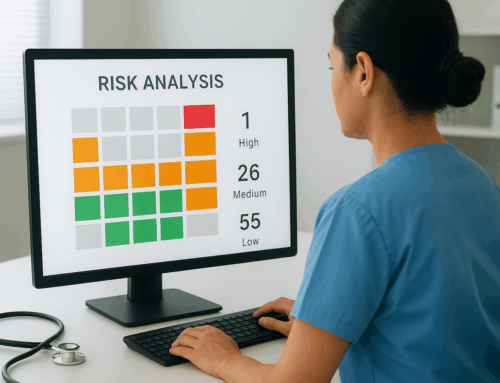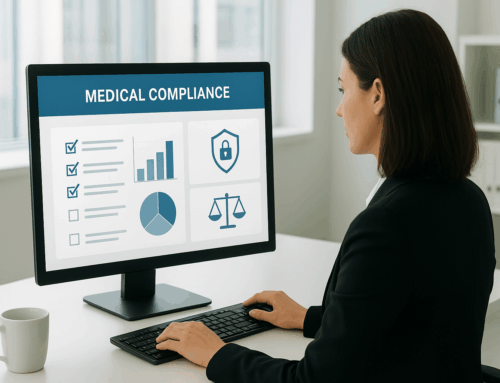
The Office of Inspector General (OIG) elements of an effective compliance program established guidance that healthcare organizations must follow to meet regulatory compliance standards. Within this framework, corporate compliance training is vital to equip professionals with the knowledge and skills to navigate the myriad regulations, policies, and ethical dilemmas.
For educated professional compliance officers, understanding the nuances and intricacies of this training is paramount in upholding the integrity and effectiveness of their organization’s compliance program.
There are several factors to consider when training staff in a corporate healthcare setting. Does the training material cover all relevant compliance topics? Does it allow you to assign training to staff members based on their job responsibilities? Does it allow you to track and monitor their progress? These are just some of the things you will need to investigate when choosing the right corporate compliance training program for your healthcare organization.
The Crucial Role of Corporate Compliance Training
Corporate compliance training in healthcare serves multiple purposes, all aimed at fostering a culture of integrity and accountability within organizations. At its core, such training aims to:
- Ensure Regulatory Adherence: Healthcare operates within a web of stringent regulations, including but not limited to HIPAA, Stark Law, Anti-Kickback Statute, and the False Claims Act. Compliance training educates professionals on these regulations, enabling them to recognize and mitigate risks of non-compliance.
- Mitigate Legal and Financial Risks: Non-compliance with healthcare regulations can have severe legal and financial consequences, ranging from hefty fines to criminal charges. Through comprehensive training, professionals learn to identify potential risks and adopt proactive measures to mitigate them, safeguarding the organization’s reputation and financial stability.
- Promote Ethical Conduct: Healthcare professionals often encounter ethical dilemmas in their day-to-day operations, such as patient confidentiality breaches or conflicts of interest. Corporate compliance training instills ethical principles and decision-making frameworks, empowering professionals to navigate these challenges with integrity and professionalism.
- Enhance Patient Safety: Compliance breaches pose legal and financial risks and jeopardize patient safety. By educating professionals on OSHA best practices and standards of care, compliance training plays a pivotal role in safeguarding patients’ well-being and fostering trust in healthcare institutions.
Key Components of Effective Compliance Training
Effective corporate compliance training goes beyond mere regulatory requirements, encompassing an approach that integrates various components:
- Customization: Healthcare organizations vary in size, scope, and specialization, necessitating tailored training programs that address their unique compliance needs. Generic, one-size-fits-all approaches are inadequate in capturing the intricacies of healthcare compliance.
- Interactive Learning: Passive learning through lectures or presentations often yields limited retention and engagement. Interactive training methodologies, such as videos, quizzes, and real-life examples, promote active participation and deeper understanding among learners.
- Continuous Education: Healthcare regulations and industry standards evolve rapidly, necessitating ongoing education to keep professionals abreast of the latest developments. Continuous training ensures that compliance officers and staff remain vigilant and responsive to emerging compliance challenges.
- Leadership Engagement: The commitment of organizational leadership is indispensable in fostering a culture of compliance. When leaders actively champion compliance initiatives and participate in training sessions, they set a precedent for accountability and integrity throughout the organization.
- Measurable Outcomes: Assessing the efficacy of compliance training is essential for identifying areas of improvement and demonstrating return on investment. Incorporating metrics such as compliance audit results, incident reports, and employee feedback allows organizations to gauge the impact of their training efforts.
Compliancy Group’s Corporate Compliance Training
Compliancy Group’s comprehensive training educates employees on regulatory compliance and cybersecurity best practices. Using SCORM and PsySec approaches to training, individuals are actively engaged and empowered to protect patients and their organizations.
With access to 90+ courses, HIPAA, OSHA, FWA, and cybersecurity are all covered. Training can be tailored to align with employee’s job roles, experience levels, and learning styles, ensuring each employee is trained effectively. Advanced courses are also offered as complete learning paths, allowing staff to be certified in various aspects of compliance and cybersecurity.
Employees can earn CE credits and certifications, and can take leadership courses for more in depth training. Administrators get access to advanced reporting tools to track their team’s progress and their organization’s overall compliance and cybersecurity readiness levels.








